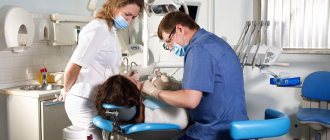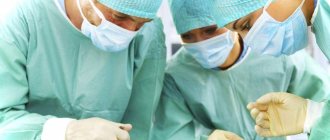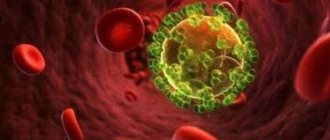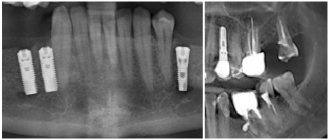What do doctors do?
In short, doctors are involved in the prevention and treatment of diseases. But, of course, this is only a condensed definition. But, more specifically, the type of activity will depend on what exactly the doctor specializes in. After all, it is the specifics of the activities of doctors that determine their activities.
Some work as a general practitioner, for example, a therapist or pediatrician, while others already treat something specific, for example, a cardiologist, surgeon, allergist. And there are also doctors who do not work with patients, but carry out research work and all their work is aimed at technology and the future. So it’s impossible to say what exactly doctors do, it all depends on their specialization. But their work is definitely aimed at people’s lives and health.
What exactly a doctor does depends on his specialization. There are several dozen specializations in the world. Each of them is mastered separately.
Disadvantages of being a pediatrician
The disadvantages of the pediatrician profession are directly related to its advantages. While saving the life and health of a child, a pediatrician may make a mistake, make an oversight, or simply not be able to provide assistance (for example, if an incurable disease is detected). In such cases, the doctor not only bears responsibility for his activities (including criminal ones), but he himself can endure severe stress. Therefore, the profession of a pediatrician can be called not only very interesting, but also one of the most stressful.
In addition to great responsibility, the work of a pediatric doctor is fraught with such disadvantages as:
- irregular working hours - the pediatrician does not work “from bell to bell”; quite often he performs his professional duties after hours, when there is a need for it;
- occupational risks – close contact with sick children can cause infection with infectious diseases. And this is not to mention the fact that sometimes pediatric doctors have to work in areas of natural disasters or “hot spots”.
How to become a doctor?
There is not a single country in the world where it would be easy and simple to master the profession of a doctor. So, if you decide to become a doctor, you have to be patient, diligent and be prepared to study a lot and for a long time.
Training to become a doctor is carried out in medical schools, while in many countries of the world doctors study longer than any other specialists. Our country is no exception. To become a doctor in Russia, first, you will need to graduate from school, then enroll in a medical school, receive a medical diploma and complete a residency or internship.
Preparation for entering medical school should begin during your school years. Students should be interested in scientific subjects - chemistry, biology, follow a healthy lifestyle, and have a thirst for knowledge.
During their studies, future doctors will have to decide on their future specialization and choose for themselves the direction of activity that they would like to engage in. At the same time, regardless of the chosen specialization, studying to become a doctor will be difficult.
To become a doctor in Russia from scratch you need to: first graduate from school, then get a medical education. You will also need to decide on your specialization and complete an internship or residency.
How much does higher medical education abroad cost?
Prices for training in medical schools vary from country to country. The most expensive medical education in universities:
- USA (for a bachelor’s degree – from 10 to 45, for a master’s degree – from 28 to 41 thousand dollars per year);
- UK (from 28 to 67 thousand dollars per year).
Therefore, among applicants from the USA and Great Britain, medical universities in European countries are popular, where studying is cheaper.
Studying at medical faculties in Germany
Germany has a high level of development of medicine, and German medical education is prestigious and of high quality.
Due to the fact that in Germany you can study in medical fields for free , the competition for admission is high. Grades in the school certificate and in the Studienkolleg matter.
Reference
It is impossible to enter a German university after the 11th grade of a Russian school without first studying at a pre-university college - Studienkolleg.
Students study completely free of charge, paying only a semester fee of 100-300 euros, depending on the federal state.
At German universities, you can receive a scholarship by applying to scholarship funds.
Important!
Medicine belongs to the so-called regulated specialties in Germany. This means that having received education at home, working as a doctor in Germany will be extremely difficult and unpromising - a complex procedure for recognizing education and restrictions on work. If you want to work as a doctor in Germany, don’t waste time and enroll in a German university immediately after school or transfer to a German university without waiting for the end of your studies in your home country! You can find out what is the best thing to do in your case and why in consultation with an experienced specialist.
Medicine (Humanmedizin / Medizin)
One of the most popular (and in Russia the most expensive) medical specialties. More than 30 universities allowing free education. Admission is possible for both the winter and summer semesters.
More information about the profession "Doctor" >>
Dentistry (Zahnmedizin/Zahnheilkunde)
More than 25 free universities, admission to the winter and in some universities - to the summer semester.
More information about the profession "Dentist"
Pharmaceuticals (Pharmazie)
More than 20 free universities, you can enroll in the winter and summer semesters.
More information about the profession "Pharmacist"
Where to study to become a doctor after 9th and 11th grade?
In 99 percent of cases, doctors are trained in higher medical educational institutions - academies, institutes and universities. Therefore, the option of studying to become a doctor after 9th grade is unlikely. But admission after 11th grade is the most common.
Most of the universities are state-owned, since the requirements for the educational process here are quite strict. Among students entering medical school, the training profile or specialty General Medicine is especially popular - this profile can be called universal, although not the only one. If you have not decided what kind of doctor you want to become, look for this particular specialization.
Where is it better to study to become a doctor - at an academy, institute or university? What is the best quality education?
In fact, the specific status of the educational institution does not matter. Medical schools in Russia are equally demanding of their students. It will not be easy to enter any of them; students will have to study hard and for a long time, which is why a diploma from any medical university will be valued - regardless of whether it is an academy, university or institute.
Training to become a doctor in Russia
Higher medical education can be obtained in any region of the country. Finding suitable universities, as a rule, does not cause problems.
Among the most popular universities where you can get a medical education in Russia are:
- Siberian State Medical University is one of the best universities in the country where you can get one of the many medical professions. Siberian State Medical University has repeatedly been included in the ranking of the most prestigious universities in the country;
- Pavlov First St. Petersburg State Medical University is not only one of the oldest universities in the country, but also one of the best medical universities in St. Petersburg. At PSPbSMU you can study in postgraduate and master's programs, there are retraining and advanced training programs;
- Kazan State Medical University is another one of the best medical universities in the country where you can study to become a doctor. Higher education received at Kazan State Medical University is valued throughout the country;
- Ural State Medical University is a prestigious educational institution for studying to become a doctor in Yekaterinburg. There are many faculties and areas of training, but entering USMU will not be easy;
- Samara State Medical University is the choice of residents of the Samara region, although many nonresident students and even foreign citizens come to study at Samara State Medical University;
- St. Petersburg State Pediatric Medical University is one of the most inaccessible universities for residents of the country, since entering here will be very difficult, but the education received here is worth its weight in gold.
The above universities are not the only ones where you can go to study to become a doctor in Russia.
Any medical school can offer quality education. Regardless of whether it will be a metropolitan university or an institute in a small city.
Ranking of universities in Russia
Today, there are at least 44 higher medical educational institutions in the Russian Federation. In addition, the education necessary to work in the medical field can be obtained at specialized faculties of some multidisciplinary universities. Knowing how many years you need to study at a medical institute, it makes sense to consciously approach the choice of a specific educational institution.
The universities of Moscow and St. Petersburg are considered the most prestigious. This is: Russian National IMU named after. Pirogov, First Moscow State Medical University named after. I. M. Sechenova, State Medical and Dental University, State Medical Academy named after. I. I. Mechnikov, State Medical University named after I. P. Pavlov.
It makes sense to choose a specific educational institution after deciding on the desired specialization. The simplest medical professions are considered to be pharmacist and dentist, and the most complex are surgeon and cardiologist. Today in our country there are specialized pharmacological and dental universities. In addition, in some universities certain departments are considered the “strongest”. Of course, this factor should be taken into account by students seeking to receive a truly high-quality education and build a good career.
Where to study to become a doctor in Moscow?
For applicants choosing the path to obtaining a doctor's education, the capital of Russia can offer not only state, but also private higher medical educational institutions.
Among the most popular universities: academies, institutes and universities where you can study to become a doctor in Moscow:
- PMGMU named after. Sechenov, or, as it is also called, First Med, is one of the most famous Russian universities, which does not even need a special introduction - there are medical students here, but only a few percent of those who want to study here will be able to enroll. The competition for a place is huge;
- RNIMU named after. Pirogov, or, as it is called, Second Medical School, is the second most important, but equally difficult from the point of view of admission, medical university in Moscow, where you can study to become a doctor of various specializations. But it will be very difficult to enter here;
- MGMSU is known as the Third Med. It also has everything you need to master virtually any medical specialization. But what is missing here is a large number of study places, so not everyone will be lucky to study here.
Of course, you can study to become a doctor in Moscow at other universities, so admission to the above educational institutions is not mandatory.
Where to study to become a doctor by correspondence and distance learning? Is distance learning possible?
Most medical professions are mastered exclusively on a full-time basis, and learning a profession remotely from scratch is hardly possible. In the best case, students have access to the option of part-time and part-time study – it is also called evening study. This method is convenient because the profession can be mastered mainly in the evening, that is, combined with some other work.
general information
A doctor is a person responsible for the health of other people.
He has no right to make mistakes. His knowledge is his main tool. In order to master this profession as efficiently as possible, it is necessary to go through all stages of training. The question: “How long does it take to study to become a doctor?” is impossible to answer unequivocally. First of all, this is due to the fact that education in this direction can be obtained both in colleges and universities. And if training in colleges has only one stage, then training in a higher educational institution consists of four stages. If we consider the question of how long it takes to study to become a doctor of the highest category, then a number like sixteen years comes up here. It is maximum, and you can reduce it by choosing a different form of training. But, despite the fact that in order to study for a doctorate, it is necessary to study for sixteen years, this education is not compulsory. In Russia, university graduates from 2016 and 2020 are allowed to begin practical medical activities immediately after receiving a specialist diploma. This innovation is associated with the transition of domestic medicine to new standards. Therefore, a modern graduate’s question: “How many years does it take to study to become a doctor in Russia?” You can safely answer: “Five or six years.”
Colleges and technical schools where you can study to become a doctor after grades 9 and 11
It is possible to become a doctor even after 9th grade, but only if you go to study not to become a doctor, but to become a specialist with secondary medical qualifications.
Among these areas are the following professions:
- A nurse is an indispensable specialist and doctor’s partner in many medical institutions. The male name for the nursing profession is nurse.
- A paramedic is a medical specialist who is actually a doctor, but there are a number of restrictions.
- A midwife is a medical worker of the average medical category who works primarily in maternity homes and provides assistance and care to women in labor and pregnant women.
- Laboratory technician is a specialist in laboratory diagnostics.
The above professions are medical and can be mastered by enrolling in a college or medical school after 9th or 11th grade. But in themselves, they are not medical, since it is impossible to study to be a doctor at a college or school. Doctors are trained in higher medical educational institutions.
Are there courses that teach doctors from scratch?
Some medical specializations are mastered through courses at training centers. Most often, such courses are conducted face-to-face, but recently distance learning formats have also become popular.
At the same time, it is important to emphasize that the option of studying in courses is available only to those specialists who go to study to become a doctor of a specific specialization not from scratch, but only after receiving a basic medical education. As a rule, such courses are conducted for the purpose of advanced training, retraining of medical workers and their recertification. From scratch, that is, without a medical education, you cannot go to study to become a doctor and take courses.
How long does it take to study to become a doctor after grades 11 and 9?
Mastering any medical profession is a long process. To begin with, the student will have to obtain a higher medical education. And, unlike the bachelor’s training programs that are common today, studying to become a physician is carried out according to its own rules. It takes about 6 years to study to become a doctor. And this is only in medical school.
The next stage of training to become a doctor is residency or internship. This is the stage of gaining practical experience in accordance with the specialization. Interns are trained for about a year, and residents for about 2 years. At the same time, upon completion of theoretical and practical training, additional advanced training and training programs are possible.
It is easy to calculate that the average training period to become a doctor when entering study after 11th grade is 7-8 years: 6 years of training in the profession at a university and from a year to 2 years in a residency or internship. And it won’t be possible to become a doctor faster than this.
It takes even longer to study to become a doctor after 9th grade. This is relevant for those students who first go to study at a medical college, where they receive, for example, a nursing education, and then go to study as a doctor at a university. For them, the period of study increases by several more years: from 4 to 5 years it will take to study as a nurse in college and another 7-8 years as a doctor at the institute. This is why studying to become a doctor after 9th grade is not a good idea. It is better to finish 11 classes and immediately enter a medical school.
Medical education in Moscow
There are real legends about how difficult it is to study at a medical school. We sincerely sympathize with applicants who have chosen medical school, because for the next seven to eight years they will have to master the most difficult profession. Today we will talk about where to become a doctor in Moscow and what is needed for this.
Higher medical education in Moscow stands on three pillars. This is the First Moscow Medical University (“Sechenovka”), Russian National Research Medical University named after. N.I. Pirogova and Moscow State. Medical and Dental University named after. A. I. Evdokimova. In addition, the directions “General Medicine” and “Pharmacy” are available at Moscow State University. Lomonosov.
How long does it take to study to become a doctor?
Doctors study the longest. Quickly, in 4 years of bachelor's degree, you can get a diploma in only one direction - “Nursing”. The duration of study in the areas of “Clinical Psychology” and “Pharmacy” is approximately 5.5 years.
General practitioners and specialists must study for 6 years - an additional 1-2 years of internship are added. If you want to become a specialist, you must complete a residency. There, young doctors undergo in-depth training and develop practical skills. Students study here for 2 to 4 years, it all depends on the chosen specialization. For example, for dentists this period is 2 years.
The residency programs at some universities include not only classical, but also unusual areas. For example, you can undergo training in the specialty “Aviation and Space Medicine” at the First Moscow State Medical University named after. I. M. Sechenov.
What subjects need to be taken?
Despite the fact that medical professions are always in demand, only the smartest, most hardworking and most collected young people can get them. The Unified State Exam is the first “sieve” through which future doctors pass.
The classic medical set of subjects is chemistry and biology. Some specialties require physics and mathematics, and additional professional tests are provided.
Is it easier to enroll after college?
It is easier for graduates of medical colleges to enter in the sense that they are good at the specific requirements, and having a diploma with honors can bring up to 10 additional points. If you went to college after 9th grade, you will still have to take the Unified State Exam. It’s easiest for those who wrote the Unified State Exam in 11th grade, because they have a valid Unified State Exam certificate.
What will you become?
If in ordinary universities everything is more or less clear with your future place of work, then in honey you can decide on your specialty before your internship. Until this stage, all students - future surgeons, gynecologists, ophthalmologists, etc. - study in the “General Medicine” direction. But if you want to become a hygienist, epidemiologist or virologist, you should apply for “Medical and Preventive Affairs”.
Students who choose dentistry, pharmacy, pediatrics, clinical psychology and some other specific areas of medical science immediately study their specialty.
Where is it easier to apply on a budget?
For your convenience, we have collected in one article information on the number of budget places (for 2017/2018) and the minimum passing score (based on the results of 2020) in medical universities in Moscow.
At the First Moscow State Medical University named after. I. M. Sechenov admission is carried out in the following areas:
- general medicine – 700 budget places, passing score – 282;
- pharmacy – 200 places, 233 points;
- nursing – 20 places, passing score – 199;
- medical and preventive care - minimum passing score - 236;
- medical biochemistry – 10 places, 252 points;
- pediatrics – 150 places, 330 points;
- dentistry – 326 points, 100 places.
- medical biophysics – 227 points, 12 places;
- medical biochemistry – 252 points, 10 places;
- bioengineering and bioinformatics – 230 points, 15 places;
- clinical psychology – 255 points, 22 places.
At Pirogovka you can submit documents for the following areas:
- general medicine – 600, passing score – 254;
- pharmacy – 30 places, 248 points;
- medical biochemistry – 18 places, 283 points;
- pediatrics – 450 places, 248 points;
- dentistry – 35 places, 258 points.
- medical biophysics – 229 points, 15 places;
- medical cybernetics – 243 points, 14 places;
- clinical psychology – 232 points, 20 places;
- social work – 203 points, 12 places;
- biology – 224 points, 18 places.
At MGMSU named after. A.I. Evdokimov you can enroll in one of these areas:
- pharmacy – 24 places, 257 points;
- dentistry – 261 points, 68 places;
- clinical psychology – 216 points, 4 places;
- social work – 190 points, 2 places.
It is the most difficult thing to get into MSU - the requirements are high, and there are few budget places:
- pharmacy - 429 points, 15 places, additional exam in mathematics;
- general medicine - 465 points, 35 places, additional exam in mathematics.
You can submit documents to RUDN University for two medical areas:
- pharmacy – 252 points, 13 places;
- general medicine – 258 points, 54 places.
We recommend choosing specialized universities - Pirogovka, Sechenovka or Dental University. Firstly, there are many budget places and a large selection of specialties. Secondly, these universities have a powerful educational and scientific base. Thirdly, their diplomas are highly valued all over the world.
Is it difficult to study to become a doctor?
Studying to become a doctor is difficult. Firstly, because it is difficult to enroll in it, secondly, because the learning process is long, and, finally, because the profession itself involves a large amount of knowledge that will be gained in the process of mastering it.
Most graduates remember their student years as one of the most difficult periods of their lives. Difficulties begin already at the admission stage, where you have to go through a serious competition. If you are lucky enough to get admitted, it will be difficult to study at the university itself - starting from the first years, studying is already very difficult, the study schedule is busy. Internship or residency is also a difficult stage; it is also difficult to pass final exams. But, as a rule, future doctors are ready for all the difficulties of studying and thousands of graduates prove that it is possible to obtain a medical diploma.
Studying to become a doctor is difficult: it is difficult to enroll and pass exams - most applicants drop out. Students have a long and lengthy learning curve ahead of them.
What do you need to submit to a doctor? What are the key subjects and exams?
Perhaps every schoolchild knows that for medical professions at school you need to focus on 2 subjects - biology and chemistry. If things don’t work out with these disciplines, training to become a doctor is unlikely to be possible.
A combination of biology + chemistry subjects is key when entering almost any medical school. But sometimes other exams may occur. This is especially true for the best universities in the country, where additional tests are often required during admission, and in addition to the Unified State Exam subjects, the applicant may be required to undergo additional testing, exams on the university form, and much more.
Is the medical profession the most difficult?
On average, you can become a qualified specialist in Russia in 3-6 years (after receiving general education). The most prestigious and promising is a university diploma, which can be obtained after 5-6 years of study. This applies to most economic, cultural, technical and other specialties. But the situation is completely different with professions directly related to medicine.
How long to study in medical school to become a doctor? Correct answer: at least 7-9 years. Why does it take so long, you ask, since you can study to become an accountant 2 times faster? A doctor must have a perfect knowledge of anatomy, biology and chemistry. Moreover, it is important to be able to apply all acquired knowledge in practice, to have an understanding of the structure of the human body and the mechanism of all processes occurring in it. Errors in medicine are unacceptable, because the price of each of them can be a human life. It is for this reason that training of specialists must be of the highest quality and takes a lot of time.
What subjects should I take to become a doctor after 9th grade at the OGE?
You don’t have to take exams to become a doctor after 9th grade, since you can enroll as a doctor only after 11th grade. However, if the goal is to first go to study at a medical college or school to become a specialist of the secondary medical category, and after graduation to enter a university, the applicant will need to take the OGE in 4 subjects to receive a 9th grade certificate of education and enter a college: 2 of them are mandatory and known to every 9th grade graduate: Russian and mathematics. The other 2 disciplines are chosen by the student himself, but we recommend taking chemistry and biology, since these are the main school disciplines that are important for a physician.
In the college or school itself, admission is usually carried out through a certificate competition - that is, they do not look at the results of the OGE, but at the overall grades included in the certificate. But often you may need to undergo additional tests - this is not uncommon for medical schools. During additional tests, you may be asked to write an essay or take a test in chemistry or biology.
Doctor as a second higher education
The profession of a doctor cannot be related. This is a specialty that takes a lot of effort and time to master. If you want to get a medical education, you will have to start your studies all over again.
The academic difference in subjects will be colossal. In this case, it is necessary to undergo practical training and internship in a medical institution. It is here that students will be able to apply their theoretical knowledge and practice safe working techniques.
If we say that the doctor wants to study another medical education, then this is possible. Moreover, through advanced training. It is not necessary to study at a university again for 6 years.
What do you need to take to become a doctor after 11th grade at the Unified State Exam?
When entering a medical school: academy, institute, university, you need to focus on passing the compulsory and core subjects. Mandatory exams that must be taken at the Unified State Exam after 11th grade to become a doctor are Russian language and mathematics. These are disciplines that are graduation and are taken regardless of desire and by everyone without exception.
The profile exams that need to be taken to become a doctor at the Unified State Exam in 90 percent of cases are biology and chemistry. When applying to some universities, it is worth additional preparation for social studies. At the same time, the points scored on the Unified State Exam must be maximum, since the competition for a place in any medical school is very high. We wrote in detail about what needs to be submitted to a doctor earlier.
It is also worth paying attention to additional tests. The likelihood of meeting them when applying to medical school is also high. Additional tests as exams may require knowledge in the same disciplines - biology, chemistry or social studies. So, if these disciplines are not available in the Unified State Examinations of the university you are interested in, perhaps they are included in additional tests at the university itself. This should be further clarified before the admission stage.
Who can I retrain as a dentist?
The specialty of a dentist allows you to obtain a higher education and retrain as a dentist. This is what many college graduates do who were initially unlucky when entering a university. It should be noted that in most medical universities, applicants who have already graduated from medical college have an advantage over other applicants. An alternative for a dentist is to become a dental technician. It only requires certain practice and courses. In most cases, retraining is not required.
Recently I came across one, which described a case of the death of a mother and child, for an unclear reason, the autopsy of which was performed by a dentist, I would like to comment on this matter.
When reading such answers from the “federal department” (if everything really is as the journalists write), you get the feeling as if you are reading a letter from Prostokvashino, which was first written by Uncle Fyodor, then by the cat Matroxin and finally by Sharik, whose shaggy hair is increased...
Therefore, to begin with, in order to avoid confusion, let’s define the terms. To understand the structure of medical education, we need two departmental orders:
2. Additional education - it is received upon completion of residency/internship (currently internship has been abolished), graduates receive a specialist certificate
, which indicates a specific
narrow specialization
, only within which the doctor has the right to conduct professional activities. Currently, there are 77 specializations (again from the group of clinical medicine), which are listed sequentially in Appendix 6.
2.1. However, if a doctor, after he has received one certificate, wants to change his narrow specialization, then in all cases he does not have to complete another residency again (where the training period can be about 3 years). He can undergo Professional Retraining (hereinafter referred to as PP), which takes much less time (about six months), but which must be completed after residency training. And here the role plays, which determines the requirements and conditions for each narrow specialization
, taking into account
the main specialty
,
narrow specialization
in residency/internship, as well as PP conditions.
Now let’s pay attention to the indicated one, where we will find a narrow specialization
"Pathological anatomy":
“...Specialty “Pathological Anatomy”
Level of professional education
Higher education - specialty in one of the specialties: “General Medicine”, “Pediatrics”
Preparation for internship/residency in specialty
"Pathological anatomy"
Additional professional education
Professional retraining in the specialty “Pathological Anatomy” with training in internship/residency in one of the specialties: “Pediatric Oncology”, “Pediatric Urology - Andrology”, “Pediatric Surgery”, “Coloproctology”, “Neurosurgery”, “Oncology”, “ Plastic surgery”, “Cardiovascular surgery”, “Forensic medical examination”, “Thoracic surgery”, “Traumatology and orthopedics”, “Urology”, “Surgery”, “Maxillofacial surgery”
Advanced training at least once every 5 years throughout your career
Positions
Doctor - pathologist; head (chief) of a structural unit (department, department, laboratory, office, detachment, etc.) of a medical organization - doctor - pathologist..."
From the above we see who exactly can work as a pathologist.
The level of professional education is
the main specialty
, which can only be “General Medicine” and “Pediatrics”.
The following is the name of the narrow specialization
narrow specializations
are indicated, which, roughly speaking, can be “exchanged” for pathological anatomy.
Thus, with the presence of a residency in a narrow specialization
“Orthopedic dentistry”, of course, it is impossible to pass the PP and receive a certificate in pathological anatomy.
However, the root of the problem is much deeper
, since in principle a dentist cannot be a pathologist; he can only be a doctor who, first of all, received the main specialties of “General Medicine” or “Pediatrics”, and then or immediately completed an internship/residency in pathological anatomy, or completed another internship/residency, which are indicated in the Order of the Ministry of Health, and then passed the PP in pathological anatomy.
Needless to say, the said response from the “federal department” does not reveal the essence of the problem, but narrow specializations
(“Children’s Oncology”, “Coloproctology”, etc.) are confused with the main specialties.
- with the final move to Israel - people are overcome by many fears and concerns, and one of their main worries is “what will I do in the new country, who needs me there”? People who have worked in their profession all their lives often have no idea what they will do in Israel. I am a dentist and I want to share with you my experience of repatriation to Israel.
Where can a doctor work after studying?
It is unlikely that a graduate will have problems finding suitable employment opportunities. Most students already know during their studies where they will be employed. At the beginning of their career path, graduates are almost always waiting for state medical institutions, where the doctor gains experience and strengthens his knowledge.
After several years of work, most medical specialists will be able to work in private medical institutions and even combine work in both public and private medical organizations. Doctors can also open their own business – a clinic or treatment center. It all depends on their ambitions and desires. In any case, labor will always be in demand, and doctors are not threatened with unemployment.
What is the salary of doctors? How much do they get paid?
In our country, the work of doctors, unfortunately, is not paid in the best way, but one cannot say that they earn little here. Most beginning specialists can count on an average income of 50,000. But such income is not a constant, it all depends on the specialization.
Also, several years after employment, doctors can count on more serious remuneration - with experience and length of service, advanced training and bonuses, the average salary in the regions of the country will tend to 80,000-100,000, and in Moscow it will exceed 100,000 rubles or more. Therefore, you can also earn money here.
How much does a dentist earn?
This question interests those who have heard about the high earnings of dentists. However, it is necessary to understand that a dentist is a specialist of average specialization, whose income is significantly less than that of dentists. This is due to a low level of qualifications and the inability to perform a number of expensive procedures. It is difficult to say exactly how much dentists earn. There are a number of factors that influence the level of their salaries:
- location of the medical facility;
- work experience;
- availability of qualifications;
- number of shifts worked.
According to statistics, in large cities and regional centers the salary of dentists can exceed the income level of the same specialists in the regions by 20–30%. On average, the income of these specialists in the CIS countries is 400–500 US dollars. It is worth noting that the salary level of a dentist in European countries exceeds the indicated figures by 2-3 times.










